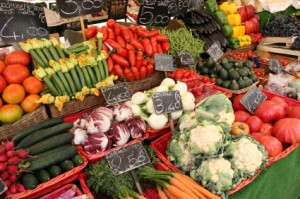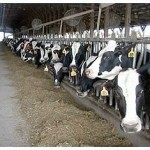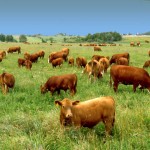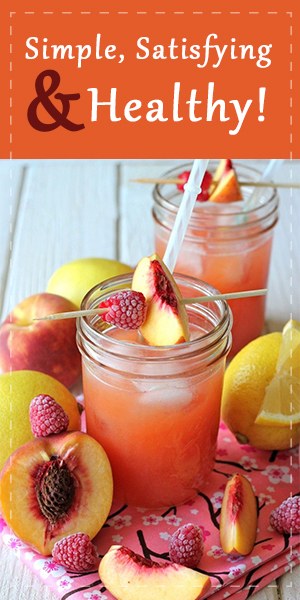The Organic Truth
There’s been a lot of buzz about organic food lately. Some say that the high price of organic food is a waste of money and that it makes people feel better about eating processed junk food just because it has an organic label on it. There are a lot of views on if it’s really worth it.
Let me start by saying that USDA organic doesn’t always mean 100% organic. As more and more big companies (Kellogs, General Mills, PepsiCO. etc.) jump on the organic bandwagon more and more problems are arising. There are a lot of additives in processed organic food, and they don’t all have to be organic. This led to an in depth research article known as The Organic Watergate. To read more about the politics of how non-organic additives are added into organic food take a look at this New York Times Article.
My thoughts? Eating organic processed foods still qualifies as eating junk food. Yes, it’s a little better because there are less pesticides but it’s still not great. If you are going to eat junk food, organic would be the way to go over traditional junk food, just be aware that you’re not necessarily eating a healthy food and processed white flour and refined sugar will still cause diabetes and heart disease wether or not it’s organic. As always, I suggest eating real food found in nature and limiting processed foods created in a lab as much as possible.
How about produce? Spend the etra money! Non-organic fruits and vegetables are sprayed with chemicals and pesticides design to kill living organisms (bugs). We also happen to be living organisms, just a whole lot bigger than bugs, so it’ll take a whole lot longer for the effects to catch up with us. Pesticides can NOT be washed off. Rinising with vinegar or a specialty spray won’t help either. Studies have shown that pesticides are just as high on the inside as the outside of fruits and veggies. Many of the pesticides used are endocrine disruptors and over time will block communication between the glands on our endocrine system that are responsible for immunity, hormones and energy. Fumigant pesticides that are used to sterilize the soil before planting potatoes, carrots and strawberries are some of the most toxic pesticides in agriculture and some are known carcinognes. Why would you willingly/knowingly eat carcinogens day after day?
What about protein? Also worth the extra money. Choose grass-fed meat and free range poultry and eggs. Cage free does not mean that they roamed on the grass and ate bugs it just means they weren’t in a cages. The hormones that are given to the animals go right into your body when you eat them. Factory farmed animals are often filled with diseases (which is why they are given antibiotics) from living in unsanitary conditions. Not to mention all the hormones they are given to get big and fat and all the chemicals they are eating on their food.
The moral of the story is that you have to do your research. Be wary of the big guys and purchase from small, independant companies if you can (Eden Organics, Clif Bar & Company, Amys Kitchen, and Lundberg Family Farms). Small companies and local farms often use organic practices but don’t label as organic because of the hefty pricetag. Know where your food comes from and buy your produce organic as much as possible, especially the items on the dirty dozen.
The Dirty Dozen are the 12 dirtiest (most pesticides) fruits and vegetables according to The Environmetal Working Group.
1. Apples
2. Celery
3. Sweet bell peppers
4. Peaches
5. Strawberries
6. Imported nectarines
7. Grapes
8. Spinach
9. Lettuce
10. Cucumbers
11. Domestic blueberries
12. Potatoes
And on the “Dirty Dozen Plus” list:
+ Green beans
+ Kale/collard greens
Clean 15 are the 15 fruits and vegetables with the least amount of pesticides. If you’re watching your budget these are the ones to save money on by buying conventional.
1. Onions
2. Sweet corn
3. Pineapples
4. Avocado
5. Cabbage
6. Sweet peas
7. Asparagus
8. Mangoes
9. Eggplant
10. Kiwi
11. Domestic cantaloupe
12. Sweet potatoes
13. Grapefruit
14. Watermelon
15. Mushrooms
What are your thoughts? Do you buy organic? Why or why not? Join in the great organic debate and let me know where you stand!













